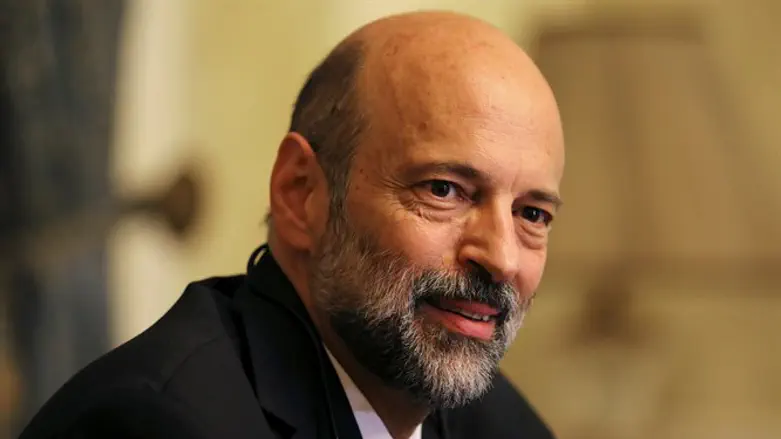
Jordan's new prime minister, Omar al-Razzaz, on Thursday announced that a controversial IMF-backed income tax bill will be withdrawn, after it sparked a week of angry protests in the kingdom, AFP reported.
Crowds have taken to the streets to demand the government drop the unpopular reforms, in some of the biggest economic protests to hit Jordan over the past five years.
Following the protests, Jordan’s King Abdullah II replaced Prime Minister Hani Mulki and appointed Razzaz instead.
Jordan's capital Amman was quiet Thursday night, with only 100 people returning to the main protest site near the prime minister’s office following Razzaz’s announcement, according to an AFP photographer.
Razzaz had earlier announced after talks with legislators that an "agreement had been struck" to withdraw the bill.
He said the legislation would be sent back by parliament to the government once a new cabinet is formed, with that process expected to take several days.
Razzaz was ordered by the king to carry out a "comprehensive review" of the tax proposals after the country was rattled by days of protests.
Jordan blames its economic woes on instability wracking the region and the burden of hosting hundreds of thousands of Syrian refugees without adequate international support.
The tax bill was the latest in a series of austerity measures to cut national debt since Amman secured a $723-million loan from the IMF in 2016.
The controversial legislation that has sparked much of the ire would have raised taxes on employees by at least five percent and on companies by between 20 and 40 percent.
Since January, resource-poor Jordan has seen repeated price rises including for staples such as bread, as well as extra taxes on basic goods.
Fuel prices have risen five times since the start of the year, while electricity bills have surged by 55 percent since February, according to AFP.
Jordan has largely avoided the unrest witnessed by other countries in the region since the Arab Spring revolts broke out in 2011, although protests did flare late that year after the government cut fuel subsidies.
Jordan's main political opposition in recent years has come from the Muslim Brotherhood movement but it faces increasing legal curbs on its activities, leaving mostly pro-monarchy parties and some independent Islamists and politicians to compete in these elections, political analysts say.
The Jordanian branch of the Muslim Brotherhood was designated by the kingdom as a terrorist group in December of 2014 and one of its top members was later charged with "souring ties with a foreign country" by criticizing the United Arab Emirates.
At the same time, compared with the tough crackdowns on Islamist groups in Egypt and Gulf countries, Jordanian authorities have been relatively tolerant of the Brotherhood's presence.
The Brotherhood wants sweeping political reforms but stops short of demanding the overthrow of the monarchy in Jordan.